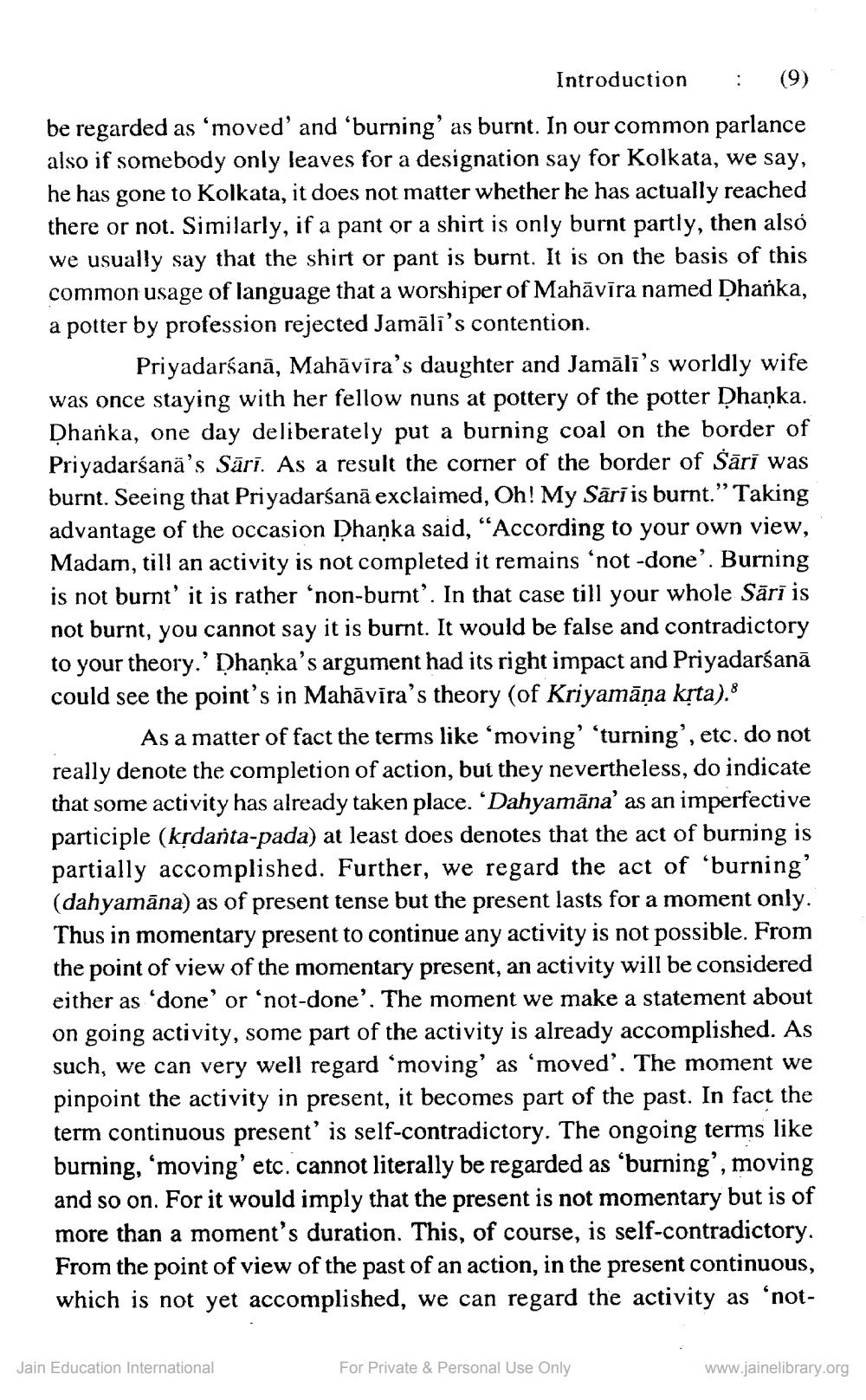________________
Introduction F:
(9) be regarded as 'moved' and 'burning' as burnt. In our common parlance also if somebody only leaves for a designation say for Kolkata, we say, he has gone to Kolkata, it does not matter whether he has actually reached there or not. Similarly, if a pant or a shirt is only burnt partly, then also we usually say that the shirt or pant is burnt. It is on the basis of this common usage of language that a worshiper of Mahāvīra named Dhanka, a potter by profession rejected Jamali's contention.
Priyadarsana, Mahavira's daughter and Jamali's worldly wife was once staying with her fellow nuns at pottery of the potter Dhanka. Dhanka, one day deliberately put a burning coal on the border of Priyadarśana's Sārī. As a result the corner of the border of Šārī was burnt. Seeing that Priyadarśana exclaimed, Oh! My Sarī is burnt." Taking advantage of the occasion Dhanka said, "According to your own view, Madam, till an activity is not completed it remains 'not -done'. Burning is not burnt' it is rather 'non-burnt'. In that case till your whole Sārī is not burnt, you cannot say it is burnt. It would be false and contradictory to your theory.' Dhanka's argument had its right impact and Priyadarśanā could see the point's in Mahāvīra's theory (of Kriyamāņa kṛta).8
As a matter of fact the terms like 'moving' 'turning', etc. do not really denote the completion of action, but they nevertheless, do indicate that some activity has already taken place. 'Dahyamāna' as an imperfective participle (kṛdanta-pada) at least does denotes that the act of burning is partially accomplished. Further, we regard the act of 'burning' (dahyamāna) as of present tense but the present lasts for a moment only. Thus in momentary present to continue any activity is not possible. From the point of view of the momentary present, an activity will be considered either as 'done' or 'not-done'. The moment we make a statement about on going activity, some part of the activity is already accomplished. As such, we can very well regard 'moving' as 'moved'. The moment we pinpoint the activity in present, it becomes part of the past. In fact the term continuous present' is self-contradictory. The ongoing terms like burning, 'moving' etc. cannot literally be regarded as 'burning', moving and so on. For it would imply that the present is not momentary but is of more than a moment's duration. This, of course, is self-contradictory. From the point of view of the past of an action, in the present continuous, which is not yet accomplished, we can regard the activity as 'not
Jain Education International
For Private & Personal Use Only
www.jainelibrary.org




